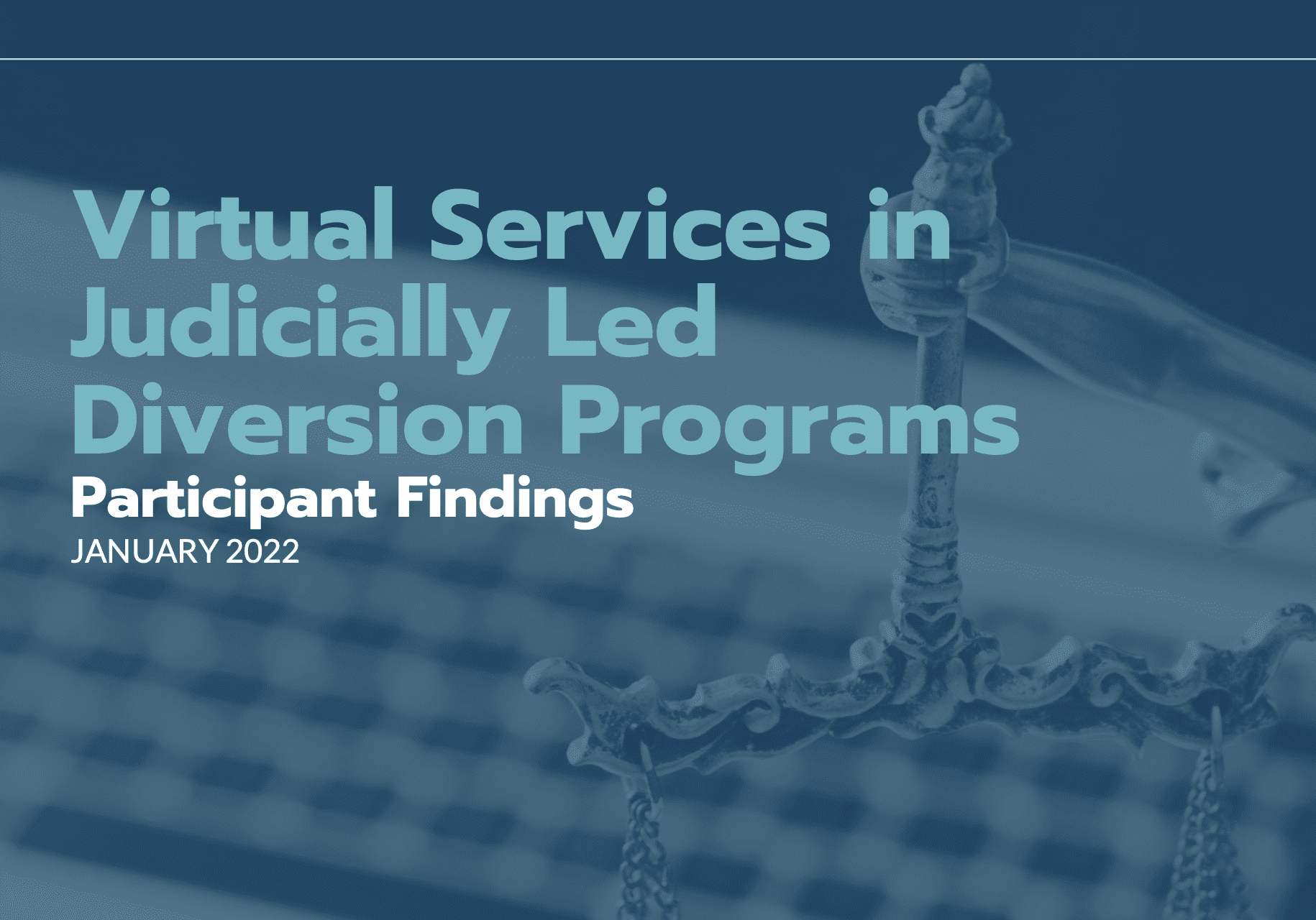Virtual Services in Judicially Led Diversion Programs Participant Findings

This report delves into judicially led diversion programs, encompassing various models like drug courts, opioid courts, and recovery-oriented compliance dockets. The report focuses on the unique perspective of participants who transitioned from in-person to virtual services during the pandemic or entered a program entirely conducted virtually.
The study’s findings, based on a convenience sample rather than a scientifically derived one, stem from an online survey distributed between March and June 2021 to participants enrolled in judicially led diversion programs in the United States. The survey explores both quantitative and qualitative aspects of participants’ experiences with in-person and virtual interactions with the court, treatment, and community supervision.
Questions also touch on perceived benefits of virtual services, support for continuing virtual court and treatment, and aspects of community-based supervision. The overarching objective is to understand how participants experienced virtual services and whether participating virtually influenced their perceptions of the services received and interactions with judges and staff, incorporating measures associated with procedural justice. Many survey questions draw inspiration from the Multi-site Adult Drug Court Evaluation.
Download PDF: Virtual Services in Judicially Led Diversion Programs Participant Findings

